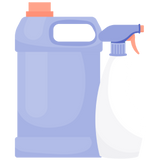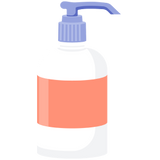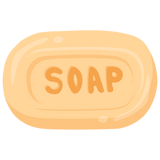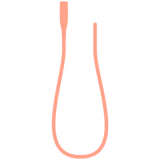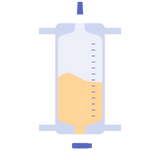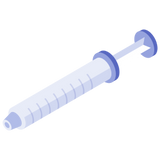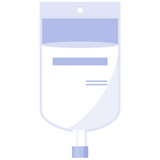
Wound Care and Preventing Infections
Posted by Pankaj Dhiman on Apr 23rd 2024
Importance of Proper Wound Care to Prevent Infection
Wounds are a common occurrence in our lives, whether they're from a small cut while cooking or a more significant injury from an accident. While wounds may seem minor, they can lead to serious complications if not properly cared for. One of the most crucial aspects of wound management is preventing infections. In this article, we'll delve into the importance of proper wound care and how it can help you avoid infections and keep your skin healthy.
Shop Now: Wound Care Supplies at Wholesale Prices
Understanding Wound Care:
Wound care refers to the process of cleaning, dressing, and monitoring a wound to promote healing and prevent complications. Proper wound care is essential for all types of wounds, including cuts, scrapes, burns, and surgical incisions. It involves several key steps:
- Cleaning the Wound: The first step in wound care is cleaning the wound thoroughly to remove dirt, debris, and bacteria. Use mild soap and water to gently wash the area around the wound. Avoid using harsh chemicals or alcohol, as they can irritate the skin and delay healing.
- Applying Antiseptic: After cleaning the wound, apply an antiseptic solution to kill any remaining bacteria and reduce the risk of infection. Common antiseptics include hydrogen peroxide, iodine, and rubbing alcohol. Be sure to follow the instructions on the product label and avoid using excessive amounts, as this can damage the surrounding skin.
- Dressing the Wound: Once the wound is clean and dry, apply a sterile dressing to protect it from further contamination and promote healing. Choose a dressing that is appropriate for the type and size of the wound, such as adhesive bandages, gauze pads, or surgical dressings. Change the dressing regularly according to your healthcare provider's instructions to keep the wound clean and dry.
Shop Now: Wound Dressings
Preventing Infections:
Proper wound care is essential for preventing infections, which can occur when bacteria enter the wound and multiply. Infections can lead to pain, swelling, redness, and pus formation, and in severe cases, they can cause systemic illness and require medical intervention. Here are some tips for preventing infections:
- Keep the Wound Clean and Dry: Clean the wound regularly with mild soap and water to remove dirt and bacteria. Keep the wound dry by covering it with a sterile dressing and avoiding exposure to moisture, such as swimming or soaking in water.
- Avoid Touching the Wound: Avoid touching the wound with dirty hands or objects, as this can introduce bacteria and increase the risk of infection. If you need to touch the wound, wash your hands thoroughly with soap and water first.
- Watch for Signs of Infection: Monitor the wound closely for any signs of infection, such as increased pain, redness, swelling, or pus drainage. If you notice any of these symptoms, contact your healthcare provider immediately for further evaluation and treatment.
- Follow Healthcare Provider's Instructions: Follow your healthcare provider's instructions for wound care, including dressing changes, medication administration, and follow-up appointments. If you have any questions or concerns about your wound, don't hesitate to reach out to your healthcare provider for guidance.
Must Read: Discover the Latest Advances in Wound Care Technology
The Bottom Line:
Proper wound care is essential for preventing infections and promoting healing. By following the steps outlined in this article and taking proactive measures to keep your wounds clean and protected, you can reduce the risk of complications and maintain healthy skin. Remember to seek medical attention if you experience any signs of infection or if you have concerns about your wound's healing progress. Your healthcare provider can provide personalized guidance and treatment to help you recover safely and effectively.
Must Read: 10 Best Selling Mouth Moisturizer and Gel in US 2024
FAQs:
Q: How long does it take for a wound to heal?
A: The healing time for a wound depends on several factors, including the type and severity of the wound, your overall health, and how well you care for the wound. Minor wounds may heal within a few days to a week, while larger or more complex wounds may take several weeks or longer to heal completely.
Q: Can I use over-the-counter products to treat wounds?
A: Over-the-counter products such as antiseptic ointments and adhesive bandages can be effective for treating minor wounds. However, if you have a deep or severe wound, or if you have concerns about infection, it's best to seek medical attention to ensure proper treatment and prevent complications.
Q: When should I see a healthcare provider for a wound?
A: You should see a healthcare provider if you have a wound that is deep, large, or won't stop bleeding, if you are unable to clean the wound effectively, if you have signs of infection, or if you have underlying health conditions that may affect wound healing. Your healthcare provider can assess the wound, provide appropriate treatment, and offer guidance on wound care and infection prevention.

















